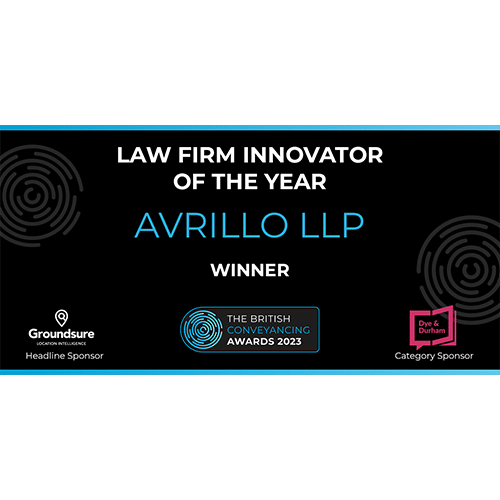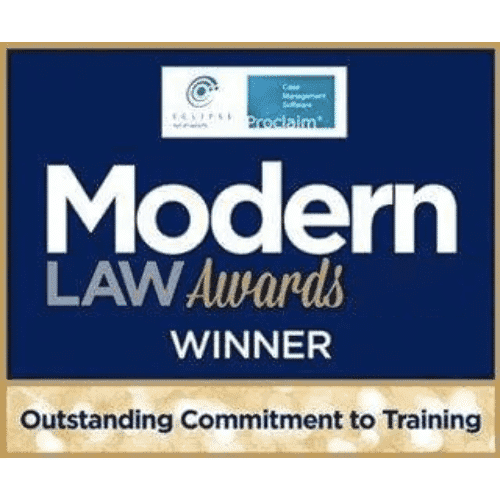Get a FREE Conveyancing Quote
Conveyancing Solicitors in Daventry
Residential Conveyancing Service Providers in Daventry
 Money-Back Guarantee and Free Trial provided by the top conveyancing solicitors in DaventryBuying a home is one of the well-thought investments for every individual, and we want to assure you that we don't take chances with your money. This is why we are offering you a money guarantee within the first 30 days of seeking our conveyancing services. If we don't meet your expectations, you can ask for your cash refund at no extra cost.
Money-Back Guarantee and Free Trial provided by the top conveyancing solicitors in DaventryBuying a home is one of the well-thought investments for every individual, and we want to assure you that we don't take chances with your money. This is why we are offering you a money guarantee within the first 30 days of seeking our conveyancing services. If we don't meet your expectations, you can ask for your cash refund at no extra cost. Always At Your ServiceWe aim to make your property acquisition as straightforward as we can, and we have a track record of having done this to thousands of clients before. Our conveyancing solicitors know the importance of being available at all times to attend to clients and offer on-time solutions and best conveyancing services possible. We at AVRillo make it easy for you to communicate with our conveyance solicitors when you need to. They will answer your questions and guide you all through the process.
Always At Your ServiceWe aim to make your property acquisition as straightforward as we can, and we have a track record of having done this to thousands of clients before. Our conveyancing solicitors know the importance of being available at all times to attend to clients and offer on-time solutions and best conveyancing services possible. We at AVRillo make it easy for you to communicate with our conveyance solicitors when you need to. They will answer your questions and guide you all through the process. A Team of Highly Qualified Conveyancing Solicitors in DaventryWe cannot overemphasise the importance of having experienced and qualified conveyancing solicitor to handle your case as they make the process faster. At AVRillo, we have exceeded the expectations in Daventry as our moving rate is at 95% compared to that of 63% nationally. All this is courtesy of having self-motivated personnel who champion customer satisfaction and work with high integrity.
A Team of Highly Qualified Conveyancing Solicitors in DaventryWe cannot overemphasise the importance of having experienced and qualified conveyancing solicitor to handle your case as they make the process faster. At AVRillo, we have exceeded the expectations in Daventry as our moving rate is at 95% compared to that of 63% nationally. All this is courtesy of having self-motivated personnel who champion customer satisfaction and work with high integrity. Effective communication only in AVRillo - the top rated conveyancing solicitor in Daventry At AVRillo, we anticipate satisfying our clients always by working every step of the journey with them. Because most clients have little or no knowledge of the complex legal terms, our conveyancing solicitors can clearly and precisely explain this to you. You are also at liberty to choose your preferred communication channel.
Effective communication only in AVRillo - the top rated conveyancing solicitor in Daventry At AVRillo, we anticipate satisfying our clients always by working every step of the journey with them. Because most clients have little or no knowledge of the complex legal terms, our conveyancing solicitors can clearly and precisely explain this to you. You are also at liberty to choose your preferred communication channel. We Value Your TimeThe conveyancing services process can be time-consuming. You, therefore, should consider delegating the task to a conveyancing solicitor who has hands-on experience, as they will save you a great deal from liaising with other stakeholders, e.g., sellers, buyers, lenders, and estate agents.
We Value Your TimeThe conveyancing services process can be time-consuming. You, therefore, should consider delegating the task to a conveyancing solicitor who has hands-on experience, as they will save you a great deal from liaising with other stakeholders, e.g., sellers, buyers, lenders, and estate agents.
AVRillo has been awarded the leading conveyance service provider in Daventry with a 95% moving rate. Value for moneyMoving to Daventry does not have to be stressful anymore because AVRillo is at your service to provide you with timely, affordable, secure, and convenient movement. We have been providing conveyance services in the UK since 1998 and have won several awards and made over 40,000 clients happy.
Value for moneyMoving to Daventry does not have to be stressful anymore because AVRillo is at your service to provide you with timely, affordable, secure, and convenient movement. We have been providing conveyance services in the UK since 1998 and have won several awards and made over 40,000 clients happy.
Without a doubt, we can assure you value for your money. You can always prove this by going through the client's review. To ease your search and acquisition process, consider working with professionals.
Residential Conveyancing Solicitors in Daventry
Daventry is a civil parish town found in the west Northamptonshire, England. It is found right at the border of Warwickshire. As of the 2011 census in the UK, the town had a population of 25,026. This makes this town the sixth-largest in Northamptonshire. This small town is the home to the Burton Memorial, the Wheatsheaf Hotel, and the historical Daventry Grammar School found on North Street. The Burton Memorial is the town’s most popular landmark. Other tourist attractions in the town include the Moot Hall and the Holy Cross Church. The average property price in Daventry is £244,934.There are 74 buildings right at the center of Daventry, with the Church of Holy Cross being the most popular one. If you are looking forward to buying property in Daventry, you will need a property conveyancing solicitor to hold your hand. There is a lot to enjoy during your stay in this part of England.



















Recent Reviews
Conveyancing Services In Daventry, West Northamptonshire: FAQs
What are the Stages of the conveyance process in Daventry?
The conveyance process can be an uphill task for first-time buyers or sellers. It’s therefore essential to have the basic knowledge of step by step process of conveyancing in Daventry.
Here are the five steps:
Step 1: instructing a conveyance solicitor
The initial stages will require you to instruct your conveyancer to find a buyer or a seller. Once the details are shared between the conveyancers, they will provide a fully signed instruction document.
The document contains detailed information about the property. The contract pack will include the title deed ownership or lease copy if it’s a leasehold property.
The conveyancer will also need to identify the source of funds for the property acquisition.
Step 2: Property Search
Your conveyancer will always go a notch higher to ensure that the property is safe to purchase. At this stage, the factors to consider will include drainage, chances searches, environmental issues, local searches, flood risks, and mining searches. Your property lawyer will advise you to proceed if there are no risks involved.
Step 3: Conduct the survey and organise for funds
Once the search results are finalised and the conveyancer is satisfied with the findings, the buyer is at liberty of finding a qualified surveyor. If the findings are accurate, the buyer goes ahead to source for purchasing funds and inform their solicitor about the mortgage.
Step 4: Signing the contract
When the buyer is satisfied with the searches, the next step will involve both parties’ solicitors signing the contract. The buyer should ensure that they are happy with the outcomes and ask questions before signing the contract.
Step 5: contract exchange
Before you exchange the contract, your lawyer will review the process to ensure that everything is in order. You will therefore be required to sign a completion statement, transfer, and mortgage deed. The signed contract will be sent to the seller’s lawyer, followed by depositing funds to his account. At this stage, you are almost becoming a homeowner.
STEP 6: completion stage
The completion day is the day everything is finalised, clearing any due balances, and if purchasing using a mortgage, your conveyancer will request funds from your mortgage lender. Your property lawyer will obtain all the necessary documents at this stage.
Step7: Post-completion
At this stage, we have a proud buyer, a proud seller, and the conveyancing lawyer will fully complete the process after paying the stamp duty and land registration at the land registry. And if it is a leasehold property, the freehold owner needs to be notified.
How Long Does The Conveyance Process Take?
The time it takes for the conveyance process may vary, but ordinarily, where there are no issues involved, it takes between 10 to 14 weeks from when instructions are first issued.
A conveyancer will guide you on what to do in case of any hiccups that will delay the process.
What Are Conveyance Fees?
The price that you pay the conveyancer for the legal process is called the conveyances fees.
Our Conveyancers offer a fixed fee for candid services and disbursement fee for other costs and paying for third-party searches.
- The cost of property
- Whether you are buying or selling
- Whether you are remortgaging or
- Transferring property
The Cost of Conveyance in Daventry?
If you are buying a property at Daventry, you will be required to pay either a legal or disbursement fee. Legal fees are straightforward, while disbursement is fees incurred by a solicitor for paying third parties, e.g., stamp duty and land registration.
Other costs would include lenders’ valuation, survey fees, etc.
On occasions where you are required to pay an extra cost, our conveyancers will keep you updated.
What Is The Role Played By Conveyancing Solicitors When Buying And Selling A House In Daventry?
When buying or selling a house, there are several legal terms used in the forms and contracts, and some can be complex for an ordinary person to understand, and this is where the role of a solicitor comes in handy. A property lawyer will help you through all the legal aspects of buying a property.
Our conveyancing lawyers make the process more convenient for you by offering you a communication channel of your choice.
If you are buying a property at Daventry, your lawyer will ensure that no issues will hinder your purchase process or reselling the property at a later date. Having a lawyer is essential because several problems can arise, which will require him to go through the searches, deeds, and titles and verify the clients’ documents, e.g., the identification card.
On the other hand, the seller lawyer should ensure tangible evidence of the title deed ownership. He should be able to hand over the documents to the buyer solicitor, and in cases where there are problems with the documents being lost, he should help in the finding process.
Does The Locality Of The Conveyancer Matter?
The answer could be yes or no. Yes, in the sense that a conveyancer who is well conversant with the locality is likely to obtain the required information with less hassle. And no, in the sense that all solicitors follow the same set of procedures in buying or selling property.
At AVRillo, our conveyancing lawyers offer their services remotely, and you can communicate with them either through emails, phone calls, texting, or any other mode you both agree.
We also have an online portal available 24/7 to enable you to get a service or chat with our customer care agents.
Does The Exchange Process Take Time?
The exchange process varies from one firm to the other and the solicitor you choose. It may take a maximum of 5 months from issuing the initial instruction to the completion process.
But on average, it takes between 3 to 4 months. Our solicitors at AVRillo take two months at most.
It would be best if you inquired from your conveyancer the approximate time you should keep waiting.
What Is A Local Search?
Before buying a property, your solicitor should ask the legal council for standard information. These inquiries are related to the property, and a fee is to be paid for the searches.
The Difference between Completion and Exchange
Completion is your happy day. The day you officially move to your new house, contract exchange is when you both agree to transact with no more conditions.
What Is Required From Me?
You will first be required to issue instructions to your conveyancer, who takes over the process. Once the process has started, you will be required to return fully signed documents and let your solicitor have a copy of your identification documents and other documents needed, e.g., a recent passport.
When you are buying, you will need to sign the purchase contract and the mortgage deed, in which your conveyancer will explain to you more about it, including finding a guarantor.
Is The Property A Leasehold Or Freehold?
You getting to know the difference matters a lot as it affects your legal ownership of the property and the completion process of exchanging the contract. Freehold means you retain the full ownership of the property after buying and grants you the liberty of disposing of the property. On the other hand, a leasehold limits your ownership right over a given period through a lease.
Should I provide my identification documents when buying or selling in Daventry?
Yes. Every buyer or seller of property in Daventry is bound to provide identification documents to their conveyancers or lenders to prove their identity and ensure they meet the Money Laundering Regulations. This is a must if you are selling or buying a property.
At What Stage Should I Apply For A Mortgage?
It is recommended to conduct market research on the mortgage lenders and compare the cost, efficiency, and duration before viewing the property you buy. Settle for a mortgage lender that suits you best.
Why should you choose AVRillo over other conveyance services?
- Our online agents are available 24/7/365 to answer your inquiries.
- Being award winners keeps us on our toes.
- We offer satisfactory services that have kept our customers happy over the years.
- We move your property faster (95%)
- On-time email reply.
- We guarantee quality service from highly qualified conveyancers
- We exceed expectations on several parameters
- We offer you excellent and timely communication
- We value our customers’ feedback and thus provide them with a platform to share their reviews
- We are consistent in our service delivery initiative
- Our rates are affordable and well structured, with no hidden charges
- 24 / 7 Online Tracking
- Call Surgery
- Online Payment
- Quote App
- Our Team & Careers
- Conveyancing Today
- Get in touch
- Cheap conveyancing solicitors
- Online conveyancing quote
- Find a conveyancing solicitor
- Solicitors for house buying
- Residential Conveyancing
- Property Conveyancing
- Solicitor Costs For Buying a House
- House Conveyancing
- Conveyancing Guide
- Conveyancing Solicitor
- Residential Solicitors
- Conveyancing

